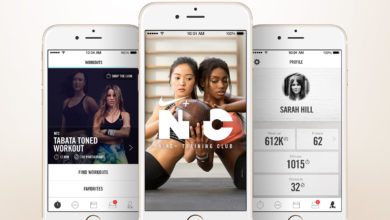
Lead Image: A recent study provides insights into people’s motivations for including themselves in photos. Published in the journal Social Psychological and Personality Science, the research discovered that first-person photos, offering the scene from the individual’s viewpoint, best represent the physical experience of an event. However, third-person images, such as selfies, more effectively convey the deeper significance of the event. The study, which included six experiments involving 2,113 participants, challenged the notion that people primarily post selfies on platforms like Instagram for self-promotion. It suggested that the perspective of the photo aligns with the individuals’ intent, whether to capture the physical experience or the broader meaning of an event. The study further revealed that people tend to enjoy their photos less when the perspective doesn’t match their purpose for taking the photo.
Study finds some selfies help capture the meaning of an event.
Research suggests that the perspective of a photo—first-person or third-person—reflects an individual’s intent to capture either the physical experience or the deeper significance of an event. Contrary to popular belief, the study suggests that selfies on social media platforms are not merely for self-promotion, but often to encapsulate the meaningful aspect of moments. The study also found that satisfaction with a photo diminishes if its perspective doesn’t match the initial purpose for taking it.
A new study may help explain why people choose to include themselves in some photos – and it is not vanity.
Researchers found that first-person photos (capturing the scene as it looks from one’s own eyes) best represent the physical experience of an event for people.
But third-person photos like selfies (documenting a moment with themselves in it) better depict the deeper meaning of the event in their lives.
“We found that people have a natural intuition about which perspective to take to capture what they want out of the photo,” said lead author Zachary Niese, a PhD graduate of The Ohio State University, now a postdoctoral scholar at the University of Tübingen in Germany.
The results also provide a counter to the view that people post selfies on sites like Instagram just to promote themselves, said study co-author Lisa Libby, professor of psychology at Ohio State.
“These photos with you in it can document the bigger meaning of a moment,” she said. “It doesn’t have to be vanity.”
The study was published today (April 27, 2023) in the journal Social Psychological and Personality Science.
Previous research suggested that capturing the physical experience of an event or its broader meaning may be two important motivations for taking personal photos.
For example, someone at the beach with a friend may take a photo of the ocean to capture the physical experience of a beautiful and relaxing day. Or they could take a photo with themselves in it to capture the bigger meaning of spending time with a friend.
In a series of six studies involving 2,113 participants, the researchers explored the impact of perspective in personal photography.
In one online study, participants read a scenario in which they might want to take a photo, such as spending the day at a beach with a close friend. They were asked to rate how important the experience itself would be for them, and how important the bigger meaning would be. Results showed that the higher participants rated the meaning of the event to them, the more likely they said they would take a photo with themselves in it.
Another study demonstrated the truth of people’s intuitions about whether each perspective better captures the experience or meaning of events. This study asked people to examine photos they posted to their Instagram accounts.
Participants opened their most recent post featuring their own photo and were asked: “What does this photo make you think about more?” with the response options being “The physical experience of the moment” or “The bigger meaning of the moment.”
Results showed that if the photo featured the participant in the shot, they were more likely to say the photo made them think of the bigger meaning of the moment, while photos featuring how the scene looked from their own visual perspective made them think of the physical experience.
But sometimes people may not take the photo that captures their goal – and the result is that they don’t like the photo as much.
In another experiment, the researchers again asked participants to open their most recent Instagram post featuring one of their photos. They were asked whether they were trying to capture the bigger meaning or the physical experience of the moment.
Participants then rated how they felt about the photo on a scale of 1 (not at all positive) to 5 (extremely positive).
“We found that people didn’t like their photo as much if there was a mismatch between the photo perspective and their goal in taking the photo,” Libby said.
For example, if they said their goal was to capture the meaning of the moment, they liked the photo more if it was taken in the third person, with themselves in the image.
Overall, the results suggest that people have an intuition about what perspective they should use in photos to fulfill what they want the photo to do, Niese said.
“I hope this study increases people’s knowledge about how photo perspective affects how they react to photos,” he said. “That way they can make sure they consciously choose the perspective that will meet their goal.”
The results also suggest people may be posting photos on Instagram and elsewhere for more than just their audience, Niese said.
“This work suggests people also have very personal motives for taking photos. Even on social media, it appears that people are curating images for themselves to look back on to capture the experience or the meaning of the event,” he said.
Reference: “Picturing Your Life: The Role of Imagery Perspective in Personal Photos” 27 April 2023, Social Psychological and Personality Science.
DOI: 0.1177/19485506231163012





